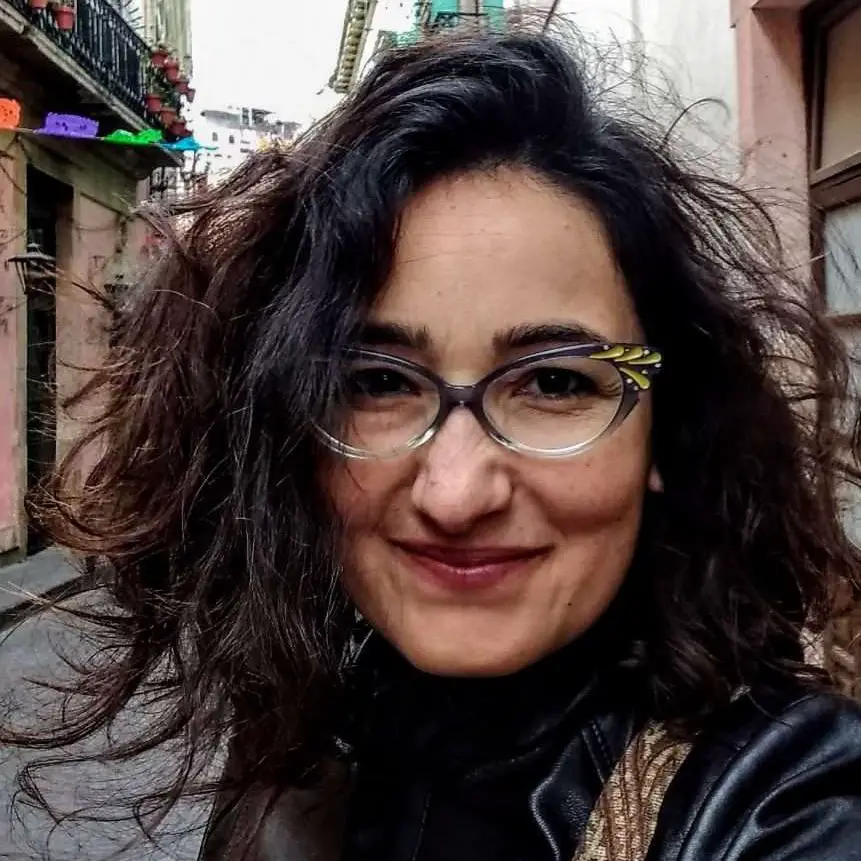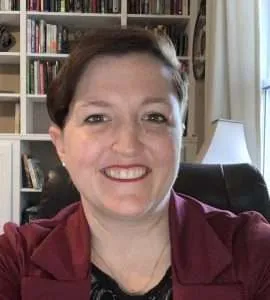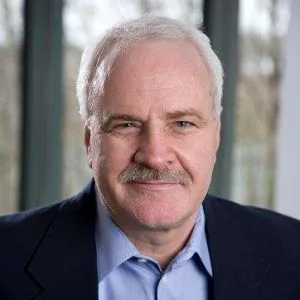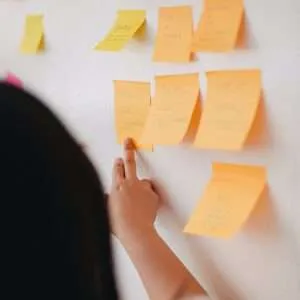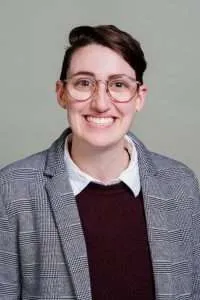Editorial Note:
This profile of Özlem Altıok, PhD is brought to you through a partnership between Applied Worldwide and Sociologists for Women in Society (SWS). Thank you to SWS and all those who made valuable contributions to the Profiles in Applied & Clinical Sociology series.
This profile is presented as part of a larger project with the intentions of: 1) providing students with examples of applied sociology, 2) providing market value to sociological skills and services, and 3) promoting the work of individual sociological practitioners and organizations. Learn more about Sociologists for Women in Society at socwomen.org.
Özlem Altıok, PhD
Dr. Özlem Altıok holds a PhD in Sociology and Community and Environmental Sociology (formally called rural sociology) from the University of Wisconsin – Madison. She also holds a master’s degree in Public Service and Administration from Texas A & M University and a bachelor’s degree in International Relations, from Istanbul Bilgi University.
Dr. Altıok teaches Women’s and Gender Studies and International Studies at the University of North Texas where she incorporates community engaged learning projects into some of her classes. Through the partnerships with organizations such as Opening Doors International Services, and Refugee Support Network, which serve immigrant and refugee communities in north Texas, her students (both graduate and undergraduate) put their skills and knowledge to work, and gain valuable experience.
As a feminist teacher-scholar, Dr. Altıok also uses her own skills in the service of advocacy networks in Turkey as well. Since 2009, she has been active in Equality Watch Women’s Group (ESiTiZ). Since its founding in 2020, in the midst of the pandemic, she has also been active in the Women’s Platform for Equality, Turkey (ESiK). Dr. Altıok volunteers her skills and labor for these groups (though these two groups are well-known, they are not incorporated, and do not have funds, so their members volunteer their skills and time). Dr. Altıok’s work with these organizations involves conducting research; drafting reports, briefs and letters (to relevant United Nations and European-level agencies); translating materials; and co-organizing and moderating national, regional and international meetings.
When we asked Dr. Altıok about establishing her advocacy work, she told us:
Generally, I built and worked to sustain relationships with scholars and advocates who share my goal of making knowledge accessible and useful to groups that work for gender equality and social justice. Specifically, as a feminist teacher-scholar-activist, I work through academic networks that value engaged scholarship including Sociologists for Women in Society and Middle East Studies Association. I also attend regional and international events to promote women’s human rights, including the Commission on the Status of Women meetings.
Continue reading below for the full interview with Dr. Özlem Altıok on her applied sociology work!
Applied Sociology with Özlem Altıok, PhD
In general, how do you use sociology in practice?
Sociology is such a part of my formation that it shapes how I approach all of my relationships, and of course my advocacy work, teaching, and parenting… I am talking about the understanding that we, and our relationships, are to a great degree, products of a given social milieu. I am both grounded in and really committed to the work that I do within given institutional settings (university, community organizations, advocacy networks) and also see them as situated in certain social relations that need to be transformed.
Whether it is my work with community organizations serving immigrants in north Texas or feminist advocacy networks in Turkey, I am deeply aware of the power relations that constitute and delimit the possibilities of action in our deeply patriarchal, capitalist societies. At the same time, my sociological formation enables me to see and point to places where there is opportunity for change. I believe that this sociological imagination is useful to the people and organizations I work with.
How do you use sociological research methods in practice?
I use qualitative research methods in my work. I learned the “tricks of the trade” from really amazing feminist, environmental and political sociologists at UW-Madison. Specifically, I use interviews and participant observation to understand the meanings people attribute to their own and others’ actions. This is crucial to understanding social movements and politics from the inside. (“Participant observation” does not quite capture the level of engagement that shapes my current scholarship, teaching and advocacy work, however. Neither does “applied sociology,” but that is another issue I plan to think and write about…)
I use quantitative data in my analyses and teaching where relevant. Yet, I also know that deep and substantive knowledge of an area (in my case, Turkish politics, including gender politics; social movements; international migration) often helps one appreciate what numbers obscure or how they can be misleading.
I publish in peer-reviewed journals and books, but I lean toward writing for a broader audience. This is both a function of how urgently I feel the knowledge needs to meet with an audience (other advocates, the public more broadly, policy makers, etc.) when it comes to violence against women or restrictions on reproductive rights, and a function of how accessible I want to be.
This is also the reason my public writing often begins from my or others’ embodied experiences. This helps demystify the research process, making explicit the interest I have in what I am writing about, and makes it easier for people to relate, and hopefully move to action.
Last but not least, some of my policy-relevant work has been produced in collectives, for a variety of reasons, and does not list me as an author or as a co-author. I value this collective aspect of that work, which goes against the neo-liberal logic that shapes the production of knowledge in our times.
How do you use sociological theory in practice?
Having been influenced by standpoint theory, I believe in the power of analyses that are grounded in women’s experiences. Women’s standpoints, especially working women, rural women, non-Christian women, women of color and indigenous women’s voices and experiences have been marginalized, and not seen as legitimate or valuable sources of knowledge. The fundamental premise of feminist social theory is to contest this, and to expose the colonial and colonizing male bias of patriarchal society that hurts women (and men, and all who do not fit the gender binary). Standpoint theory helps us expose how different sources of social inequality lead to oppression, and more specifically to exploitation.
In my work, I try to amplify grounded knowledge produced by women, including my students, who do not necessarily have access to economic and other kinds of power. I also aim to highlight that grassroots movements do have political power of a different kind. This helps us see, and imagine, the possibility of transformation and liberation.
Lessons for Future Practitioners
What types of courses should undergraduate students take in preparation for a career similar to yours?
I benefited from coursework in social theory, social research methods, including feminist methods, and history. I took courses in international organizations and law as an undergraduate student in Istanbul, and recommend that graduate students take similar courses as part of their master’s and doctoral degree plans. Learning a concrete “marketable” skill as they say these days is a plus, of course. Learning a language, statistical software or GIS, the basics of grant-writing…These would help.
Volunteering in humanitarian and political advocacy, seeking internships with community organizations where ever they are would be great places to begin preparing for a career like mine (one that involves teaching and advocacy, where the two feed and enrich one another).
What types of courses should graduate students take in preparation for a career similar to yours?
My advice to graduate students would be similar to the one I offer undergraduate students. Often graduate students, especially doctoral students are “disciplined” into focusing on their academic work, and in so very specific ways that they lose sight of “the bigger picture”. I think graduate students can be hurt in some ways if they give in to the pressure to specialize. In my view, questions graduate students could benefit from asking are “Why am I asking this research question? Why am I asking it in this way?” “Who is this project/research benefiting”? “What can I do to make it more accessible and even benefit the people/communities I care about?”
What types of experiences should undergraduate students seek in preparation for a career similar to yours?
I tell my students to seek experiences that put them into productive relationships with people and nature. Doing something together, working toward a common cause—on campus or beyond—is a great way to learn new skills, and build new relationships – good and lasting friendships even! My work with small and big groups that work for peace, for gender equality, for social and environmental justice benefited me in many ways, and pushed me to learn new skills, and meet new people…Specifically then, I would suggest they join campus groups and/or community organizations—and better yet, start ones that bridge life on campus with life in the community, and life locally to what goes on globally…
Volunteering with organizations during undergraduate studies also happens to be a good way for students to impress potential employers for whom students might do an internship or work full time.
What types of experiences should graduate students seek in preparation for a career similar to yours?
My advice to graduate students would be similar to what I offer undergraduate students. Perhaps I would add this: Do not put off writing until after you are “done” with your thesis or dissertation. Overcome the fear, and write short pieces, or longer pieces that help you clarify your own thinking – put your thoughts out there!
How would you describe the daily life of an applied or clinical sociologist?
This is close to the end of this interview, but I do need to say that I have not used the term “applied sociologist” to describe myself before. Insofar as I apply my sociological knowledge and skills outside of academia (as well as within it, to make academic work more accessible and more useful), the term may, well…apply!
In practice, in my work, I engage communities outside of academia and I draw on these engagements in my teaching and scholarly work. My work involves many emails, phone calls and actual meetings now. I read, listen, talk, conduct some research, write, talk some more and write some more. I learn in the process, and translate and share what I learn with students, fellow advocates, and others.
I think that my students, colleagues and the communities I work with appreciate the relationships built as a result of my political and pedagogical choices. These relationships involve much communication, and synthesizing of information.
Depending on the specific work I am engaged with, who I communicate with and learn from may change. The nature of the communications and syntheses differ depending on the particulars of the work, of course. When I am leading a community-engaged learning project with an immigrant and refugee serving organization, where my students put their research or interviewing skills to use in support of asylum applications in an immigration court in Texas, I am not only relaying information, I have to also prepare them for the kinds of emotional labor that will be involved – about the traumas they will learn about in the course of their work.
For my recent work on violence against women and reproductive rights in Turkey and Texas, I synthesize information from legal scholars, sociologists, activists on the ground, and sometimes government and municipal employees. Not all applied work needs to be intense, but because of the kinds of issues I focus on, mine is. Consequently, incorporating these experiences and lessons into my teaching also takes much intellectual, physical and emotional labor.
A persistent challenge for those of us who are on the street, in the classroom and perhaps in policy spaces, is to create some sort of balance and to care for ourselves. Meaningful conversations with others who experience similarly intense teaching-scholarship-advocacy (im)balance helps as do occasional retreats from society. Personally, I am thankful for my daughters who manage—occasionally—to pull me out to the woods, for some good-old-fashioned camping under the stars.

